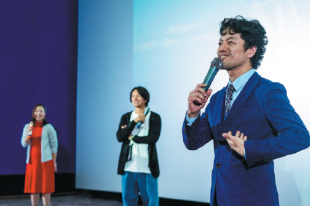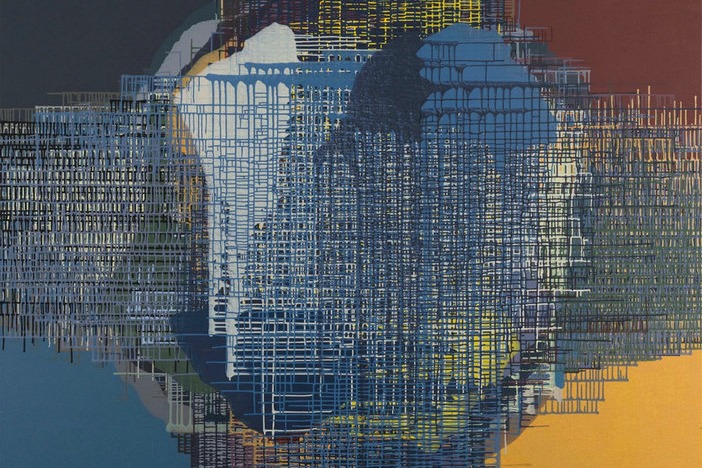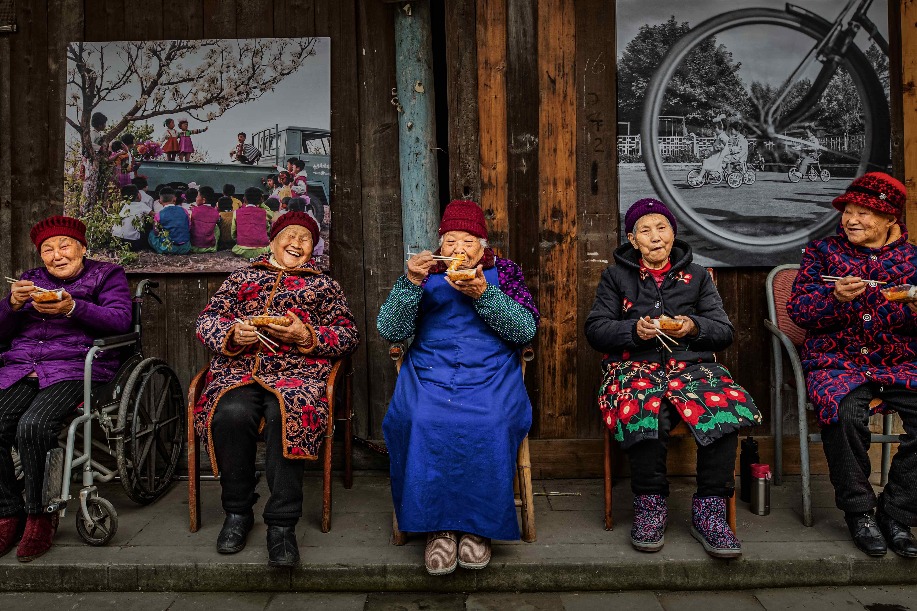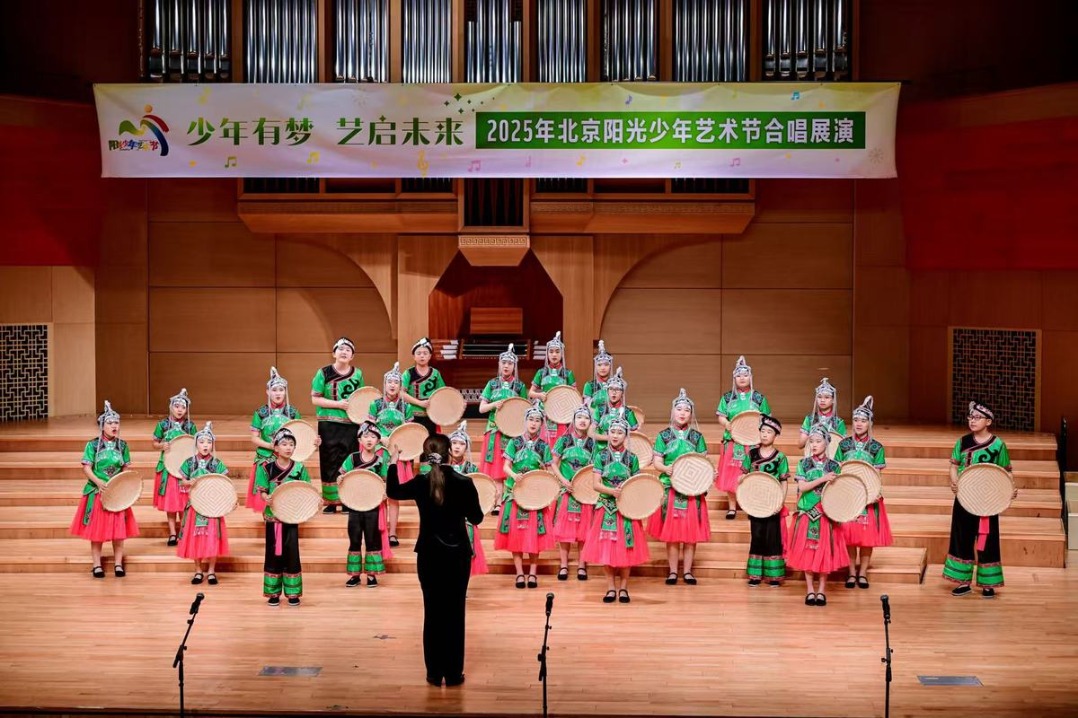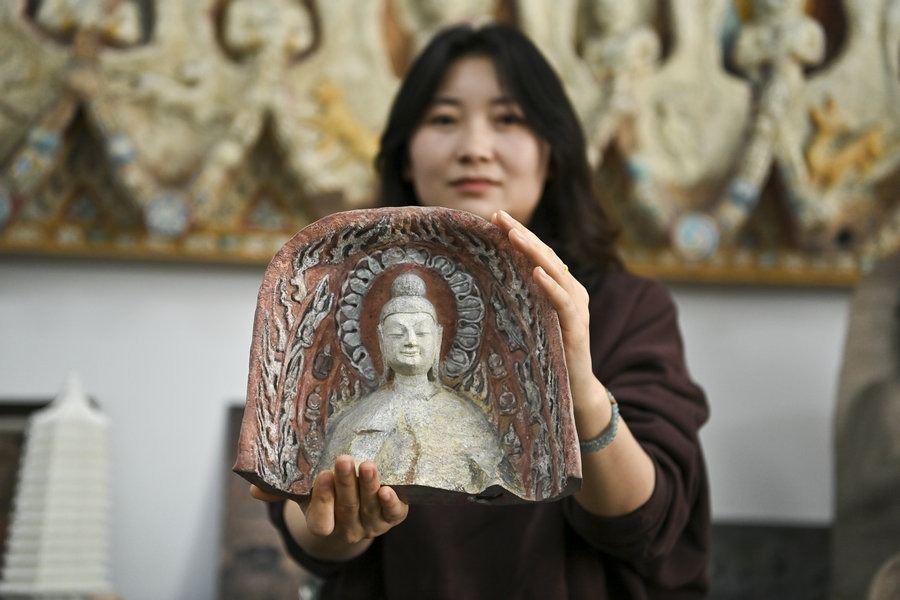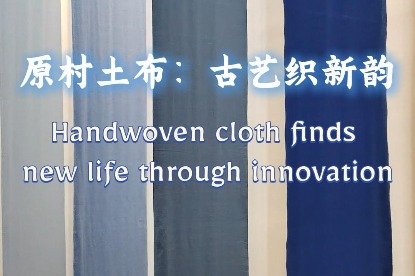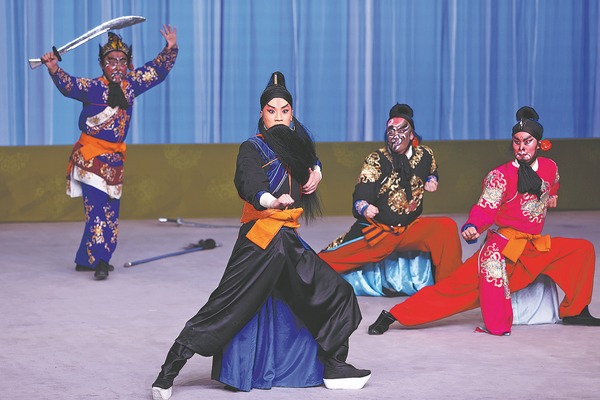Beyond borders
Japanese director zooms in on those who decide to live outside of their own country, Xing Wen reports.

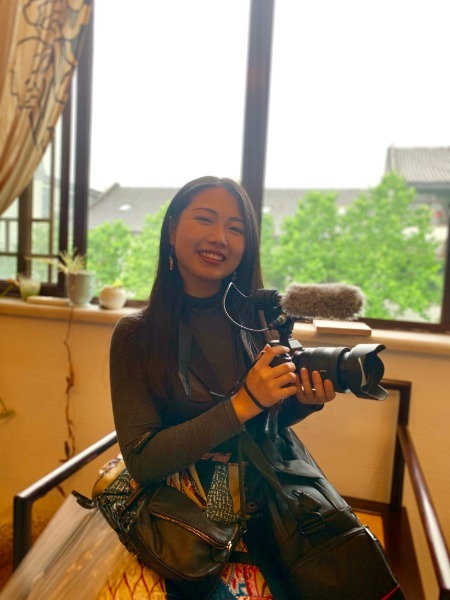
Wan Binru, a Chinese member of the production team.[Photo provided to China Daily]
The origin of the journey
For his personal story, his decision to relocate to China started with a task assigned by Japan's national broadcaster NHK in 2010, when he recorded the cultures, customs and lives of people who live on the banks of the Yangtze River. He traveled from its source on the Qinghai-Tibet Plateau and talked to local people at each stop. He realized that they knew little about modern-day Japan.
He wanted to foster more communication, so three years later, he and his family moved to Nanjing, to live with his Chinese wife's parents. The couple set up a cultural company, aiming to produce more visual works related to cultural exchanges.
The Reason I Live Here is their first key project, initiated in 2015, through which, they hope, Chinese viewers can learn more about Japanese people and vice versa.
To the delight of the director and his Chinese wife Zhao, many young people have joined their company with the same passion-to bolster international cultural exchanges between Chinese people and people from other countries. Many of their employees were initially fans who avidly follow the series, Zhao says.
"These young Chinese colleagues showed a keen desire to learn more about Japanese society, and Takeuchi is also curious about Chinese culture illustrated through the dialogue and deeds by the interviewees," Zhao says.
Wan Binru, 23, an assistant director in the company, agrees that what Takeuchi has been doing in promoting mutual understanding between peoples from various countries is in tune with her dream.
Brought up in Nanjing since childhood, Wan has felt a national grief and profound hatred among her fellow countrymen toward the Japanese invaders during the War of Resistance Against Japanese Aggression (1931-45), particularly the criminals who carried out the six-week Nanjing Massacre in 1937, who slaughtered over 300,000 Chinese.
After some 80 years, many young people like Wan still bear in mind the national humiliation and grief, but on the other hand, they see the world as "one community with a shared future", and call for more communication between all people of the world.
"I first visited Japan during my middle school years, and the trip sparked my interest in Japanese culture," says Wan, adding that she also wanted to do something to foster more mutual understanding of the Japanese and Chinese cultures.
Wan acquired film production skills after graduating from the University of Wisconsin-Madison with a major in East Asian studies, Japanese language and communication arts, in 2018. She took a gap year afterward and toured around, during which time she got to know Takeuchi's documentaries.
"I swiftly clicked with the director, and thought I should join the team," Wan says, pointing out that Takeuchi focused on the everyday lives of individuals in a way that is easy to be comprehended by viewers of different ages.
"It's a good idea that works well to forge people-to-people bonds, demolishing the invisible wall between them," she adds.


